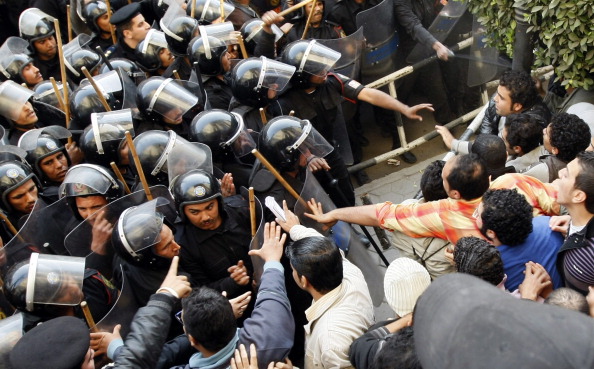A new report from former UN director of communications Edward Mortimer says the BBC’s coverage of the Arab Spring uprisings was “reasonably impartial”.

As the BBC Trust – the governing body of the BBC – proclaims on its website, “The BBC exists to serve the public, and its mission is to inform, educate and entertain … and we make sure the BBC delivers that mission.” One way that it tries to do this is by conducting reviews of the impartiality and accuracy of the BBC’s coverage of news and current affairs, choosing a different topic each year. In 2011 the topic chosen was “the events known as the ‘Arab Spring’” and, as part of the review, I was asked to undertake an “independent assessment”.
By what standards can impartiality be judged in such a context? Indeed, are we sure what impartiality means? It can’t be simply a matter of giving equal time to each of two sides, if only because there are many more than two parties involved. The BBC’s Editorial Guidelines say explicitly that impartiality “does not require absolute neutrality on every issue or detachment from fundamental democratic principles”. Does this mean that BBC journalists should uncritically espouse the viewpoint of those who claim to be struggling for democracy? Happily that is not how they interpret it. At most, they allow themselves to display some degree of attachment to democratic principles – “we don’t ask a despot why he isn’t more despotic” – but generally they aim to apply the same sceptical scrutiny to all political actors, including those who advocate democracy or claim to practise it.
The guidelines also state, as one of the principles of impartiality, that “we seek to provide a broad range of subject matter and perspectives over an appropriate timeframe across our output as a whole”. I took this to mean that, in assessing impartiality, I should consider not only whether the coverage included different points of view but also whether all aspects of the story were adequately covered.
My broad conclusion was that, in general, the BBC was reasonably impartial in its approach to the events that it covered, but that in some cases the focus of its coverage was too exclusively the main dramatic story of the moment – Egypt from 25 January to 11 February 2011, Libya from February to October, and Syria for most of the time since. The intense focus on Libya was understandable and to some extent justifiable in view of British involvement in the conflict there, but it did also contribute to skimped or very patchy coverage of other Middle Eastern countries including Bahrain, Yemen, Egypt after Mubarak’s fall, Algeria, Morocco, Jordan, and – perhaps most seriously – Saudi Arabia, a difficult country to cover but one of enormous regional influence and strategic importance.
From a media point of view, the most novel aspect of the “Arab Spring” was the abundance of UGC (user-generated content – meaning video footage and recordings not made by professional journalists), combined with the lack of access for professional reporters and camera crews to many of the crucial scenes of action. UGC is generally provided by activists or citizens with a strong interest in the outcome of a conflict, and therefore has to be treated with caution by news organisations striving for impartiality and accuracy.
On the whole the BBC was well equipped to cope with this, being able to draw on the local knowledge of people from various Arab countries working in its Arabic service and in the unit which monitors foreign broadcasts. Well before the “Arab Spring”, a UGC hub had been established in the BBC newsroom, which sifted all content as it came in and passed it on to the broadcasting departments with comments on the degree of authentication that had been possible and the appropriate level of doubt or confidence with which it could be treated. Caveats about the difficulty of verification were sometimes included in the broadcasts, but – according to content analysis carried out for the Trust by Loughborough University – only in a minority of cases.
I asked senior BBC executives whether viewers and listeners could take the absence of such caveats as an assurance that the BBC had fully authenticated the material in question. The answer was that “the policy is not as clear as that, but perhaps it should be”. My understanding is that in future it will.
Edward Mortimer has written extensively about the Middle East for British newspapers, and is a former Director of Communications for the UN Secretary-General. His report on the impartiality and accuracy of the BBC’s coverage of the events known as the “Arab Spring” was published on June 25, and is available here.






















